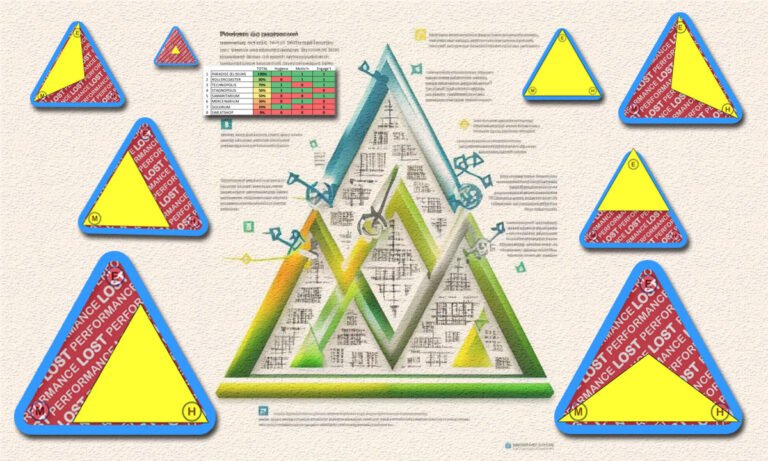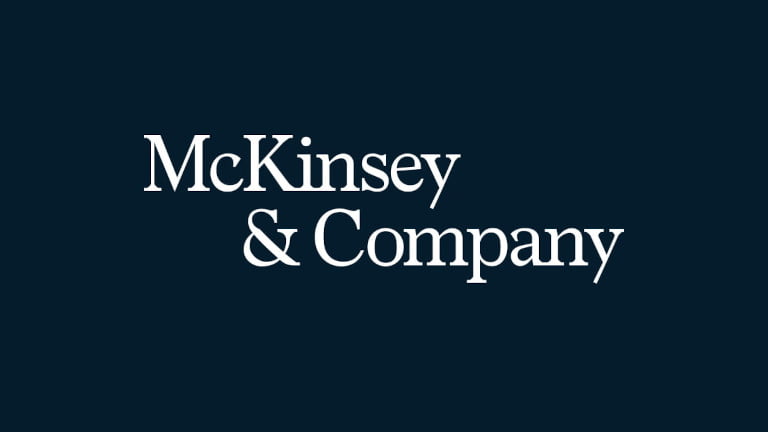How Leadership Impacts KPI’s
As we are all aware, KPI’s are known for tracking, monitoring, and identifying gaps in the performance of organizational processes. But, do we understand the true meaning of KPI’s and how leadership impact KPI’s?
As per ASQ, the definition of Key performance indicators (KPI’s), is “to help an organization measure progress toward specific goals. They must be quantifiable measurements, agreed to by management that reflects the critical success factors of an organization.”
But is this the only definition of KPI’s? In my many conversations with various industry leaders, KPI’s have been shifting from measuring processes to measuring employee performance and their ability to execute their jobs. Is this how KPI’s were designed and intended to be applied? Is this fair to the employees that have no control over the existing defective processes, have no say in improving and identifying defects, with no ability to change the process without repercussions because of failure, and have no direct management involvement or assistance?
Unfortunately, this is a new reality, and it has affected employee morale, a loss of valuable assets in intellectual knowledge, experience, and insight.
Undoubtedly this has impacted the organizations’ ability to compete, grow, and meet growing customer demand.
Humility – Weakness or Strength
Humility is a quality that, in our western culture, is one of the most, if not, the most challenging condition to embrace. Here in the USA, we still have many leaders with old 1950’s mentality that believe that leadership is about submission, control, and FEAR.
Some believe that without these qualities, they will look weak in the eyes of their employees. So, to demonstrate their power and authority, they “whip” employees into what they believe is a successful management style. A more in-depth analysis of that person’s team and you will see that there is low morale, higher employee turnover, employees terrified to speak up in fear of losing their job, and inconsistency in process performance.
Humility is viewed as being too passive, submissive or insecure, and as a human flaw of weakness. To be humble is far from being weak. Humility is not a weakness, but the greatest strength a human being can ever aspire to possess. It’s more prevalent than intelligence, money, and title. It takes a real power of concentration, self-awareness, self-control, focus, deep understanding, empathy, knowledge, dedication, and a resilient heart to be humble. Humility makes a simple ordinary person into a superhero! Let’s analyze this for one moment.
Would you say, Martin Luther King, Nelson Mandela, Rosa Parks, and the list continues to be of weak people? These examples have moved kingdoms, dynasties, presidents, in fact, the world through humility.
So, what does it mean to lead with humility? In simple terms, it means to realize that you don’t know it all. We need all the people around us to be successful.
Leading with humility is the foundation of the Shingo Guiding Principles, and it is the cornerstone of enterprise operational excellence.
“It is impossible for a leader to lead the development of a principle-based culture until he or she has gone through the deep personal reflection required to begin a cultural transformation. Humility is an enabling principle that precedes learning and improvement. A leader’s willingness to seek input, listen carefully, and continuously learn creates an environment where team members feel respected and energized and will give freely of their creative abilities. Improvement is only possible when people are willing to acknowledge their vulnerability and abandon bias and prejudice in their pursuit of a better way.” (Shingo Institute-Shingo Model Guide).
To lead with humility, you need to constantly, continually, and consistently change, transform, and re-educate your skills to develop a new way of thinking, seeing, hearing, and working with your team.
I call this transformation, Evolution through Revolution. As a revolutionary, you will lead the charge of change and transformation. You will begin by communicating a new message that is based on guiding principles of standards and behaviors. Every new revolution begins with struggles, fear, challenges, and resistance. Many within your organization will not join you on this journey and may even block your efforts of success. But don’t get disheartened, this journey is not for everyone. Only the brave, the courageous, and the dedicated will succeed.
To lead with humility, as a leader, you need to take the first step, which starts with respect for the individual. But what does that mean?
Respect for every individual means to show genuine appreciation for everyone in your organization regardless of their position, title, or level within the organization. That includes; our front-line employees, the warehouse pickers, the front-line nurse, the nurse’s aide, the housekeeping crew, the cooks of the cafeteria, the hard-working minorities, the intelligent and unrecognized women of all colors, creed, and beliefs.
It involves embracing all your teams’ strengths, weaknesses, cultures, languages, knowledge, insight, ideas, aspirations, failures, achievements, goals, dreams, and contributions. In other words, respect everyone, every day, every time!
So, let’s begin this journey by reflecting deeply on what these two principles entail.
Respect everyone
Treat everyone with dignity and respect. There is no room for biases (color, race, beliefs, cultural English accents, cultural and religious clothing, levels of education, height, weight, disability including depression), bullying, embarrassing, and discrediting peers publicly during meetings or presentations, on phone calls or in private. Respect means showing appreciation for your peers’ work. Not sabotaging or disrespecting anyone’s work, which is the lowest form of work ethics a person can have.
I know that these behaviors may sound like things your children might tell you they see at their schools. And you’re right! That’s because they’re still children and still developing and evolving as they grow older with knowledge and experience. But unfortunately, some people, even after leaving grade school, never developed the Key Behavioral traits of respect and humility. So, they continue to behave with childish, unprofessional, and disrespectful behaviors, even in our 21st-century corporate world of today.
Lead with Humility
Only a true leader will have the bravery yet humble heart to realize that employees are not machines that can be tweaked, kicked, pushed, or punished when they see their employees struggling to execute their job successfully. A true leader will be the first one to have the courage to make the cultural and behavioral changes to lead with humility.
To achieve ideal behavior changes, leaders need to engage personally with their teams to develop Key Behavior Indicators that will drive sustainable and continuous results, which will not be easy. As a leader, you will need to empower your teams to become active change agents, fearless innovators, voices that challenge the status quo, cross-trainers, architects of new ideas, explorers of improvements, cultural ambassadors, seekers of perfection, evangelizers of excellence, peacemakers, and a reflection of your example.
What does KPI mean?
Leading with humility will exponentially improve your organizations’ processes, and performance KPI’s. You and your team will achieve a level of growth and excellence, as you have never seen before. The employees will also see and feel the difference. They will notice an improved alignment with the overall mission. Everyone will make a sincere effort to treat each other
Leading with humility will exponentially improve your organizations’ processes, and performance KPI’s. You and your team will achieve a level of growth and excellence, as you have never seen before. The employees will also see and feel the difference. They will notice an improved alignment with the overall mission. Everyone will make a sincere effort to treat each other with dignity and respect, which will contribute to higher employee retention, satisfaction, contribution, dedication, job appreciation, and better customer service. So, what should KPI’s represent?
“Kindness, Perseverance, Integrity”
Kindness
By treating everyone with kindness, you will have visible evidence of compassion, empathy, patience, and equilibrium. These changes will not happen overnight. It takes time and considerable perseverance to confront the obstacles and critics that try to discourage you. But don’t give up. Showing kindness is the right thing to do.
Perseverance
The journey toward enterprise excellence will require a great deal of determination, especially if you’re taking the path that only a few brave and courageous take. In our western culture of the corporate world competition, only the fierce, strong, heartless, and ruthless rise to the top.
A deeper reflection into the lives of people who live by intimidation and arrogance, and you’ll see that in the future, these people begin to suffer from heart attacks, ulcers, drug abuse, mental breakdown, divorce, and even cancer.
So, leading with humility is not only the right thing to do but also a healthy thing to do. It contributes to improved mental, physical, emotional, and spiritual health. You will experience greater harmony in your life with family, friends, and colleagues. You will realize that you’ve made a difference in the world. Yes, you will become a hero to many, an inspiration for others, and an example to all.
Integrity
“The quality of being honest and having strong moral principles; moral uprightness, decency, fairness, sincerity, truthfulness, the state of being whole and undivided.” (Oxford Dictionary)
The journey to cultural enablement will require deep conviction and integrity on your part. So, stay true to yourself, to your cause, to the mission, to your heart, and your goals.
Conclusion
For change to have fruitage, it’s up to you to take the first steps to change and break the behaviors mold of the 1950s. You can begin today. Start by walking, talking, and working side-by-side with your team on the floor, not behind a desk on the 20th floor. Be the leader of the 21st century and inspire others besides your team to take the journey with you in leading with humility. Go beyond the secular definition of KPI’s and aspire to reach achievements higher than you expected. And if anyone asks you, what’s the reward for taking such a hard, challenging, and arduous journey? Just answer them with one word; Excellence!
About the author
Carlos is a member of the Shingo Institutes’ Alumni and a Global Shingo Prize Examiner of enterprise operational excellence. He has over 25 years of experience in leading operational strategy deployment, lean transformational principles, cross-functional process optimization, certified as a lean six sigma black belt, and PROSCI change management practitioner. His career spans the advancement of operational excellence in the Americas, the Caribbean, and Europe for fortune 500 companies in a variety of industries.
Currently, he works as the VP of Operational Excellence, where he guides, mentors, and coaches C suite executives on adaptive approaches of operational excellence, cultural transformation, and ideal behavior gaps in the implementation of the Shingo model guiding principles.








